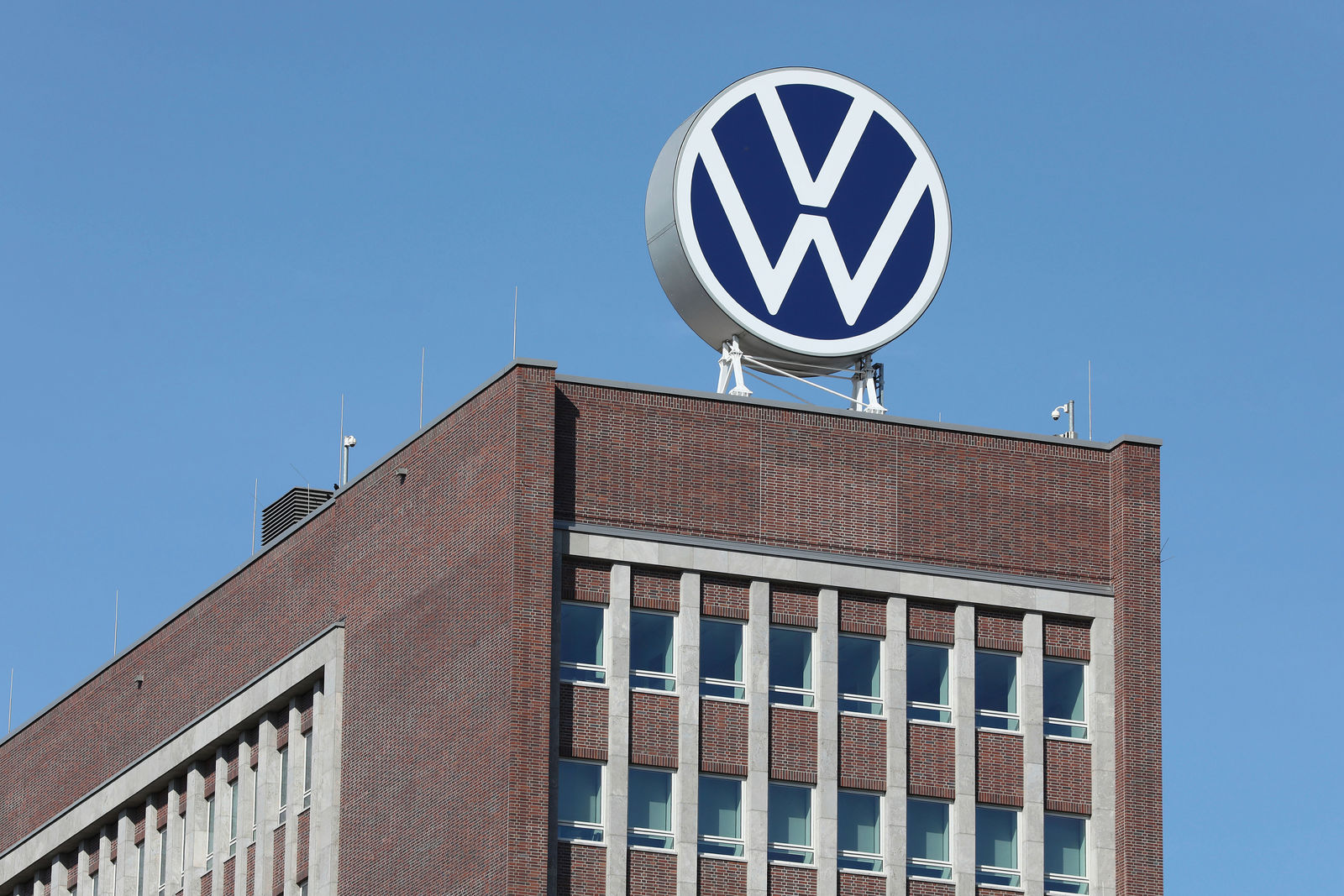- Business significantly impacted by Covid-19 pandemic
- Marked reduction of general overhead costs, R&D expenditure and capex; inventories also lowered
- Deliveries to customers fall to 2.2 million vehicles in the first half (– 26.7 percent)
- Sales revenue down to around EUR 29 billion (–35.5 percent)
- Operating result before special items of EUR –1.5 (2.3) billion
- Significant recovery of business in June, model initiative provides added momentum for the second half of the year
Business at the Volkswagen Passenger Cars brand was significantly impacted by the global Covid-19 pandemic in the first half of 2020. However, effective countermeasures reduced the impact of the crisis. Through strict cost management the brand substantially reduced its general overhead costs, expenditures for research and development and capex year-on-year. In addition, production was strictly oriented toward customer demand, leading to a considerable reduction in inventories compared with the prior-year period. Deliveries to customers by the core brand of the Volkswagen Group were down 26.7 percent in the first half of 2020 to 2.2 million vehicles. Sales revenue decreased by approximately EUR 16 billion (–35.3 percent) to around EUR 29 billion. As a consequence, the Volkswagen brand’s operating result before special items fell to EUR – 1.5 billion from an operating profit of EUR 2.3 billion in the previous year.
Alexander Seitz, CFO of the Volkswagen brand: “The Covid-19 pandemic presented unprecedented challenges to Volkswagen in the first half of the year and had a strong impact on our financial figures. However, thanks to effective countermeasures such as strict cost discipline and prioritization of projects, we succeeded in substantially reducing general overhead costs, R&D expenditure and capex. With outstanding teamwork, staff and management have steered the brand on a stable course through this crisis so far. Our financial situation is still solid and we are aiming for an operating profit for the year as a whole. We expect to gain momentum in the second half, because our model initiative will develop its full potential.”
Volkswagen brand’s business witnessing a noticeable recovery recently
Deliveries by the Volkswagen brand in March and April were down around 38 percent on the respective months of the previous year. Since then they recovered steadily to around –18 percent in June. This development was also reflected in the operating result before special items, which nearly reached the break-even point once again in the single month of June. For July, the brand expects deliveries to fall short of the prior-year figure by only a single-digit percentage.
Continuation of effective countermeasures
Despite initial signs of a recovery, the further development of the Covid-19 pandemic remains difficult to forecast. The brand will therefore maintain its effective countermeasures and continue to strictly prioritize investments and place the strongest focus on expenditure discipline. For 2020 as a whole, the brand anticipates sales revenue to be significantly below prior-year level. The operating result before special items is expected to be severely lower than in 2019, but still positive.
Model initiative in full swing, ID.3 gets off to a promising start
The Volkswagen brand is expanding its attractive product portfolio notwithstanding the Covid-19 pandemic, systematically showcasing a whole range of new models in all segments. Battery-powered electric vehicles and plug-in hybrids are a key pillar of the brand’s strategy. Since June, customers have been able to place orders for the new ID.3, the first model to be based on the Modular Electric Drive Matrix (MEB). Other important models such as the new Tiguan and the new Arteon family have also been launched. Additional derivatives of the new Golf family will be added in the course of the year. The brand will press ahead with the electrification of its portfolio by rolling out multiple plug-in hybrid models in the coming months. Model variants of the new Golf, the new Tiguan, the new Arteon family and the Touareg will be available with this drive system in the future. In South America, the new crossover utility vehicle (CUV) Nivus also successfully premiered in the small car segment. In China, the brand’s largest single market, the model initiative was likewise successfully continued with the presentation of the Viloran, Tayron GTE and JETTA VS7 models.
Key figures for the Volkswagen brand:
| | Jan. – June | Jan. – June | Change |
| Deliveries | 2,198,900 | 2,998,200 | –26.7% |
| Vehicle sales | 1,134,000 | 1,886,000 | –39.8% |
| Sales revenue | 28,580 | 44,146 | –35.3% |
| Operating result* | –1,491 | 2,286 | |
| Net cash flow* | –3,705 | 1,568 | |
* before special items
| Deliveries to customers by market | Jan. – June | Jan. – June | Change |
| Western Europe | 478,200 | 790,100 | –39.5% |
| Central and Eastern Europe | 92,600 | 131,900 | –29.9% |
| North America | 208,400 | 281,300 | –25.9% |
| South America | 148,000 | 226,600 | –34.7% |
| China (incl. HK) | 1,167,800 | 1,429,800 | –18.3% |
| Rest of Asia-Pacific | 52,100 | 71,700 | –27.4% |
| Middle East/Africa | 51,800 | 66,800 | –22.4% |
| Brand overall | 2,198,900 | 2,998,200 | –26.7% |
Media contacts

Tel. +49 (0) 5361 / 9-18895

